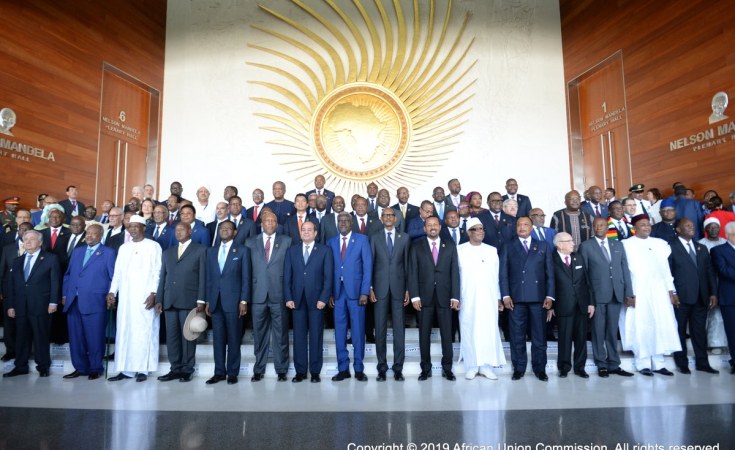The African Union (AU) on September 9 formally secured its seat within the G20, after accepting an invitation extended by Indian Prime Minister Narendra Modi during the G20 summit in New Delhi, India. As part of this influential group, consisting of 19 countries and the European Union (EU), the AU gains access to a host of advantages that can propel the continent's interests and actively shape global agendas.
Elevated Representation
Joining the G20 has significantly elevated the AU's representation on the global stage. Previously designated as an "invited international organization," the African Union, comprised of 55 member states, now enjoys the same status as the European Union, granting its leaders a platform to directly engage with the world's leading economies, ensuring African voices are heard and respected in international decision-making processes.
Influence on Global Governance
Membership in the G20 empowers the AU to actively participate in shaping global governance. Africa can advocate for policies and initiatives aligned with its unique challenges and priorities, whether related to climate change, trade agreements, or security matters. Amb. Moussa Faki Mahamat, Chairperson of the African Union Commission, expressed the potential of this membership for amplifying the continent's advocacy efforts.
Economic Growth Opportunities
Participation in the G20 contributes to Africa's economic growth. The AU can leverage this platform to foster economic cooperation, attract investments, and explore opportunities for trade expansion with major global players. The World Bank's positive GDP growth forecasts for Africa further underline the potential for economic advancement.
Global Investment
G20 membership opens doors to increased foreign direct investment (FDI) and economic partnerships. African nations can attract investments in vital sectors like infrastructure, technology, and renewable energy, fostering economic development.
Trade Agreements
The AU can actively engage in discussions related to international trade agreements within the G20, shaping trade policies that benefit the continent, promote fair trade practices, and reduce trade barriers. G20 leaders are committed to open trade and have mandated key organizations to monitor and report on these commitments.
Financial Assistance
As a G20 member, the AU can advocate for financial assistance and support for African nations, addressing crucial issues such as poverty alleviation, healthcare, and infrastructure development. The G20's comprehensive financial inclusion plan benefits all nations and populations, including vulnerable groups.
Global Security
African security challenges often intersect with global security concerns. By participating in G20 discussions on security matters, the AU can effectively address regional conflicts, counter-terrorism efforts, and peacekeeping operations.
Climate Change Mitigation
G20 membership provides a platform for the AU to advocate for climate action, access climate finance, and collaborate on sustainable development initiatives to mitigate the impact of climate change on the continent, which disproportionately affects Africa.
Technological Advancements
Leveraging the G20, the AU can explore partnerships, access knowledge, and promote technology transfer, accelerating Africa's technological development. The G20 Digital Innovation Alliance (G20-DIA) offers opportunities for innovation and advancement in the tech industry.
Global Collaboration
Being a member of the G20 fosters stronger diplomatic relations and collaboration with G20 countries and other international organizations. This enhanced cooperation can lead to joint initiatives addressing Africa's multifaceted challenges, promoting solidarity and shared solutions.
By joining the G20, the African Union opens new doors to global engagement, ensuring that Africa's voice is heard and its interests are actively pursued on the international stage.


